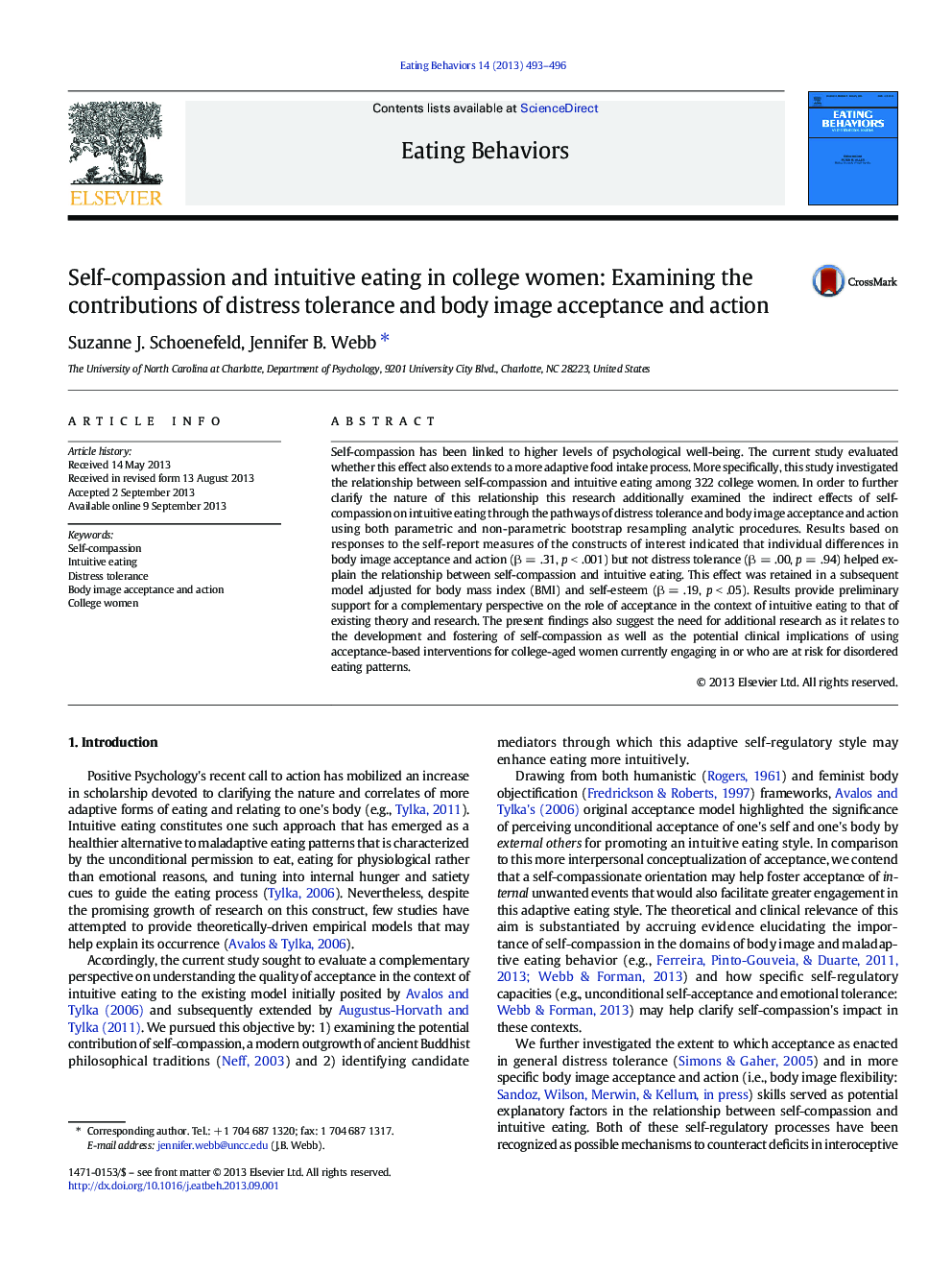| Article ID | Journal | Published Year | Pages | File Type |
|---|---|---|---|---|
| 906334 | Eating Behaviors | 2013 | 4 Pages |
•Self-compassion was positively associated with intuitive eating.•Body image acceptance and action helped to explain this association.•Distress tolerance was not a significant mediator in this model.•Findings may have implications for promoting healthy eating in college women.
Self-compassion has been linked to higher levels of psychological well-being. The current study evaluated whether this effect also extends to a more adaptive food intake process. More specifically, this study investigated the relationship between self-compassion and intuitive eating among 322 college women. In order to further clarify the nature of this relationship this research additionally examined the indirect effects of self-compassion on intuitive eating through the pathways of distress tolerance and body image acceptance and action using both parametric and non-parametric bootstrap resampling analytic procedures. Results based on responses to the self-report measures of the constructs of interest indicated that individual differences in body image acceptance and action (β = .31, p < .001) but not distress tolerance (β = .00, p = .94) helped explain the relationship between self-compassion and intuitive eating. This effect was retained in a subsequent model adjusted for body mass index (BMI) and self-esteem (β = .19, p < .05). Results provide preliminary support for a complementary perspective on the role of acceptance in the context of intuitive eating to that of existing theory and research. The present findings also suggest the need for additional research as it relates to the development and fostering of self-compassion as well as the potential clinical implications of using acceptance-based interventions for college-aged women currently engaging in or who are at risk for disordered eating patterns.
